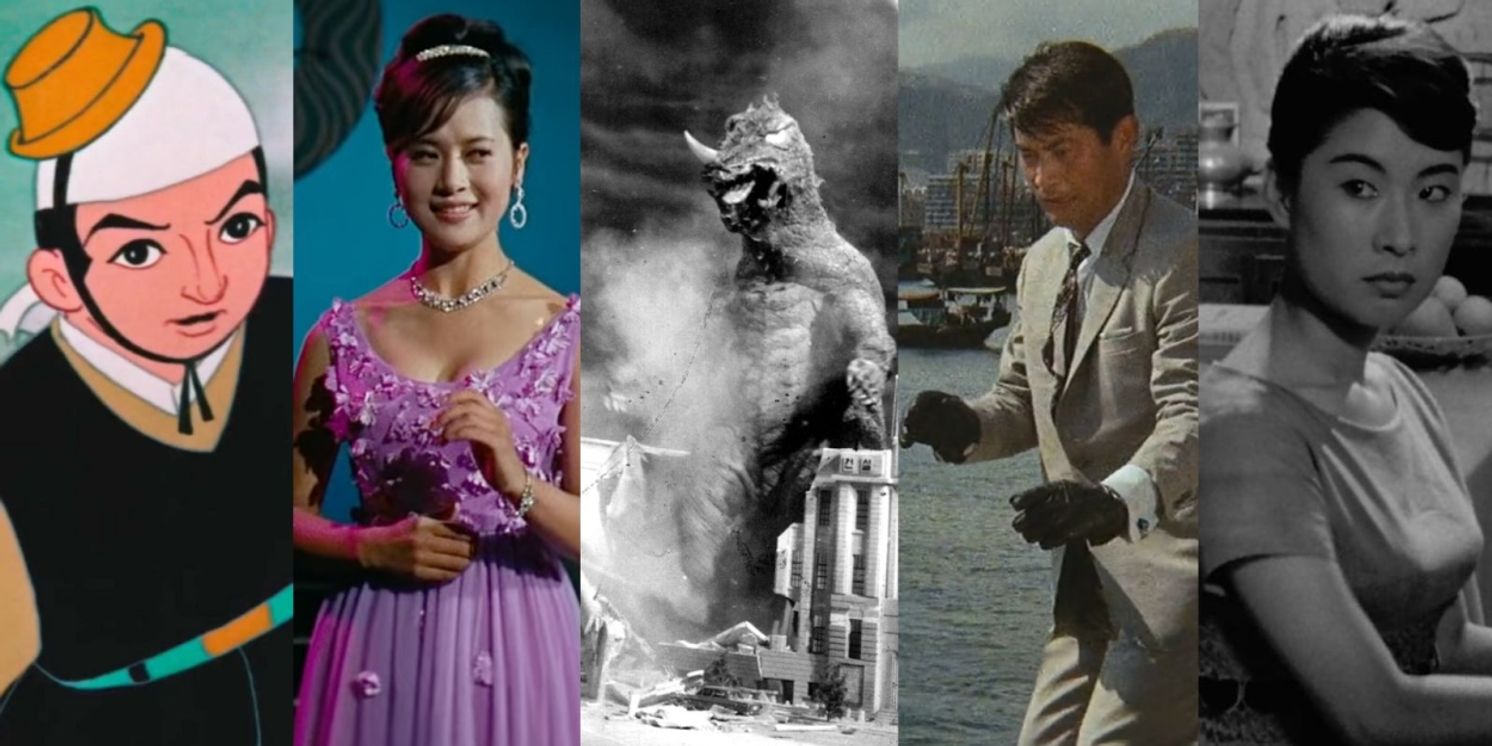KOREAN CINEMA'S GOLDEN DECADE: THE 1960s Comes to Lincoln Center
The series will run from September 1–17 and is one of the largest retrospectives ever of 1960s Korean Cinema outside of Korea.

Film at Lincoln Center and Subway Cinema announce “Korean Cinema’s Golden Decade: The 1960s,” a sweeping retrospective that features 24 films from this remarkable period in Korean film history. The series will run from September 1–17 and is one of the largest retrospectives ever of 1960s Korean Cinema outside of Korea, including many rarely screened films, several presented on 35mm archival prints.
Long before Bong Joon Ho, Hong Sangsoo, and Park Chan-wook catapulted South Korean cinema onto the world stage, the foundation of their country’s film industry formed in the aftermath of the Korean War. The period kickstarted a wealth of eclectic and innovative filmmaking that culminated in the 1960s. Closer inspection of this decade, now widely considered Korea’s premier film renaissance, reveals the arrival of seminal works from auteurs such as Kim Ki-young, Shin Sang-ok, Yu Hyun-mok, Kim Soo-yong, and Lee Man-hee, alongside a meteoric rise and reinvention of genres—from melodramas and period epics to action, horror, war, and giant monster movies. Although the military dictatorship still imposed tight constraints throughout this era, what these filmmakers managed to accomplish under such conditions, in arthouse fare and unabashed popular entertainment alike, continues to reverberate and inspire to this day. This September, Film at Lincoln Center and Subway Cinema are thrilled to showcase this rich period and its remarkably varied films, encapsulating a generation’s collective endeavor to define a national cinema.
Highlights include Kim Ki-young’s The Housemaid, one of the unquestionable masterpieces of Korean cinema which tells the story of a bizarre ménage à trois formed between a music teacher, his wife, and their increasingly assertive housemaid; Kang Dae-jin’s The Coachman, the first Korean film to win a major overseas award, the Silver Bear (Special Jury Prize) at the 1961 Berlin Film Festival; Hong Eun-won’s A Woman Judge, the second Korean feature to be directed by a woman and considered lost for more than 50 years until a 16mm print was recovered in 2015; Special Agent X-7, a highly entertaining and beautifully shot color spy film from Chung Chang-wha (The King Boxer), which was also long considered lost until the 35mm print was discovered in 2013; Kim Kee-duk’s The Great Monster Yonggary aka Yongary, Monster from the Deep, Korea’s first monster movie and an entertaining take on Godzilla and Gamera “that’s long on rampages and short on sensible behavior”; Shin Dong-hun’s The Story of Hong Gil-dong, South Korea’s very first animated feature film which follows the iconic Robin Hood-like figure Hong Gil-dong and was considered lost until 2008; and A Day Off, Lee Man-hee’s spare, lyrical film concerning the strained relationship of a poor young couple, belatedly recognized as one of the decade’s masterpieces after censors refused to allow its release.
The series will also include conversations following select screenings. After the September 2 screening of Yu Hyun-mok's seminal Aimless Bullet, audiences will be treated to a discussion about the growth of the Korean film industry and major trends and filmmakers in Korean cinema in the 1960s—a not to be missed primer for the series as a whole; and on September 3, a conversation will follow the international premiere of the newly restored The Marines Who Never Returned, and how Lee Man-hee’s breakthrough feature became the first Korean movie to gain national theatrical distribution in the U.S.
Organized by Young Jin Eric Choi, Goran Topalovic, and Tyler Wilson. Co-presented by Subway Cinema in collaboration with the Korean Cultural Center New York and the Korean Film Archive.
Tickets will go on sale on Thursday, August 3 at 2pm, with an early access period for FLC Members starting at noon. Tickets are $17; $14 for students, seniors (62+), and persons with disabilities; and $12 for FLC Members. See more and save with a 3+ Film Package ($15 for GP; $12 for students, seniors (62+), and persons with disabilities; and $10 for FLC Members) or All-Access Pass: $125 for General Public and $99 for Students. Add dinner at Café Paradiso, located in FLC’s Elinor Bunin Munroe Film Center, with our $30 Dinner + Movie Combo.
Enjoy two films for the price of one at select double features! Valid on September 2 & 17 with The Story of Hong Gil-dong + Hopi and Chadol-bawi , September 9 & 16 with The Great Monster Yonggary + Space Monster Wangmagwi, and September 14 with A Swordsman in the Twilight + Special Agent X-7. Discount automatically applied when adding both tickets to your cart; double features excluded from 3+ Film Package.
“Korean Cinema’s Golden Decade: The 1960s” is sponsored by MUBI GO. With MUBI GO, you can get a free ticket every week to see the best new film in a theater near you, plus a wide selection of films to stream any time, from iconic directors to emerging auteurs. All carefully chosen by MUBI’s curators.
Opening September 1, the Solomon R. Guggenheim Museum will present Only the Young: Experimental Art in Korea, 1960s–1970 s, the first North American museum exhibition dedicated to Korean Experimental art (silheom misul) and its artists, whose radical approach to materials and process produced some of the most significant avant-garde practices of the 20th century.

Videos

